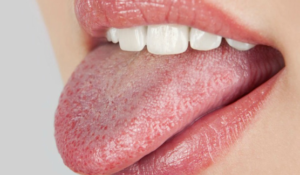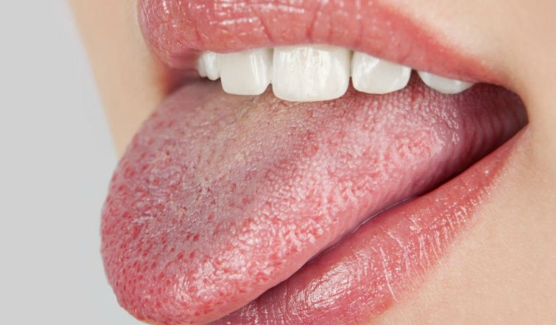Dry mouth at night is a condition affecting very many people. It occurs when your salivary glands are unable to produce enough moisture to ensure that the mouth will remain wet. The saliva produced by these glands help in combating bacteria and acids that are known to cause bad breath, gum disease, and tooth decay.

Absence of saliva in your mouth at night can thus be very uncomfortable for you. It also has the potential to disturb your sleeping patterns as well as have a negative effect on your oral health. Read on to learn the of causes dry mouth at night, e.g., diabetes, anxiety, frequent urination, while sleeping, extreme dry mouth, and during pregnancy.
You will also learn about home remedies that can be used to control dry mouth at night. Treatment options are also discussed in detail.
Dry mouth at night symptoms
The symptoms of this condition include:
- Bad breath also known as Halitosis
- Regularly waking up in the middle of the night to take some water
- Cracked or burning tongue
- Experiencing a dry mouth after waking in the morning
- Presence of a constant dry throat
- Experiencing dry throat and lips after waking up
- Presence of foamy, stringy, or thick saliva upon waking up
What causes dry mouth at night?
It is considered normal to occasionally experience a dry mouth. It mainly occurs when you are nervous or when your body is dehydrated. But a persistent dry mouth should not be taken lightly as it may be an indication of an underlying medical condition.
A dry mouth is likely to occur when your salivary glands are incapable of producing enough saliva. The problem arises when the body is suffering from dehydration. Dehydration is common when you do not take enough fluids.
Lack of sufficient fluids means that the body will not be in a position to produce the required amounts of saliva. Dry mouths could also be caused by the following:
- Sjogren’s syndrome—it is a condition where your salivary glands are attacked and damaged by your immune system
- Medication—different kinds of medications can cause a dry mouth at night. They include diuretics, antihistamines, and antidepressants. Check the leaflet accompanying your medication to establish whether dry mouth is a listed side-effect.
- Blocked nasal passage—using your mouth to breath when you are sleeping can cause it to become dry
- Radiotherapy—radiotherapy in your neck and head may cause inflammation of your salivary glands.
- Diabetes—it is a lifelong condition that has been known to cause your blood sugar levels to rise to extreme levels
Inform your GP or dentist about the symptoms being experienced. They will help you establish why you are experiencing a dry mouth.
Problems that can be caused by a dry mouth
Saliva has a very prominent role to play in your mouth. It ensures that the mouth remains healthy at all times. Having a dry mouth may expose you to additional problems like:
- Difficulty swallowing, eating or speaking
- Experiencing soreness or a burning sensation in the mouth
- Gum disease and tooth decay
- Dry Lips
- Recurrent infection of the mouth, e.g., oral thrush
- Bad breath
- A reduction in your sense of taste
Dry mouth at night diabetes
Having a dry mouth is always a very unpleasant experience. The condition is clinically referred to as xerostomia. It is characterized by the absence of saliva in your mouth.
Saliva is an important component in the mouth as it assists in balancing acidity levels in the mouth. It also washes away acid present around your gums and teeth. People suffering from diabetes have been known to experience dry mouth at night.
Apart from the lack of moisture, they could also experience:
- Oral thrush
- Gum inflammation. Also known as gingivitis
- Irritation at the mouth corners
Oral thrush symptoms include cracking at the corners of your lips, tongue redness, and presence of white patches in your mouth. A diabetic can reduce the effects of this condition by:
- Frequent use of lip balm to protect against lip irritation
- Always ensuring that the blood sugars are within the recommended range
- Using a non-alcoholic mouthwash or gel
- Brushing your dentures or braces after every meal
- Try and remain hydrated for the rest of the day. You may have to carry water with you at all times
Dry mouth at night during pregnancy
This condition is very common during the first trimester. It tends to worsen during the nighttime and may be accompanied by:
- Metal cotton mouth
- Stuffy, dry nose
- Indigestion
- Cracked lips
- Hot flashes
- Headaches
These symptoms can be attributed to the various metabolic and hormonal changes that occur in your body during pregnancy.
Pregnancy-related causes of a dry mouth at night
- Use of certain medications
- Increased blood volume. It causes more fluids to be processed by your kidneys. The end result being dry mouth and frequent urination
- Gestational diabetes
- Increased metabolism rates. This causes you to sweat excessively lead to increased loss of your body fluids
- Dehydration due to lack of sufficient fluids
Dry mouth at night menopause
Menopause causes significant hormonal changes in women. A drop in your estrogen levels leads to reduced amounts of moisture in your mucous membranes. It is the reason why you are likely to experience dry eyes when you have a dry mouth.
Salivary cortisol also rises during menopause. Estrogen hormone regulates the cortisol throughout the day before the start of your menopause phase. Dropping estrogen levels means that there will be a weakening of the limiting factor.
You will therefore have a burning sensation and a dry mouth at night. You can reduce some of the menopause symptoms by taking hormone replacement therapy. Taking progesterone could however worsen your symptoms.
Dry mouth at night while sleeping
Xerostomia can be caused by very many factors. But the lack of enough moisture at night is mainly caused by snoring or sleeping with your mouth wide open. Other factors that can play a role in causing it are:
- Medication side effects
- Stress
More than four hundred prescriptions and over the counter medications can cause dry mouth at night, according to the American Dental Association. Frequent occurrence of dry mouth is a problem that should be addressed by a professional regardless of its cause. The mouth requires adequate supplies of saliva even when you are asleep.
Dry mouth at night and frequent urination
Dry mouth and frequent urination are considered to be the most common diabetes symptoms. Your blood sugar levels can start to come down when you start taking diabetes medication, insulin, or when you change your diet. This is because some of the glucose you have ingested will find its way into the cells in your body.
This means that it will not be floating in your blood. This will then lead to the disappearance of the symptoms you had experienced earlier such as frequent urination and dry mouth. Failure to contain the condition will mean that your symptoms will start to reappear.
Dry mouth at night anxiety
Stress creates a lot of unease. It may cause you to experience a dry mouth in addition to making you very uncomfortable. Your mouth is likely to become sticky when the salivary glands are unable to produce enough saliva.
You could also feel as if your mouth is not clean. Chewing and swallowing may also worsen with time. Reach out to your dentist if you regularly suffer from dry mouth and anxiety as they can be very harmful.
Dry mouth can in a sense be caused by anxiety. The symptoms of this condition are likely to flare up and then disappear every once in a while depending on your regular routine. Stress and anxiousness can reduce the amount of saliva flowing in the mouth.
Extreme dry mouth at night
It can be caused by:
- Age: Dry mouth at night is not a natural part of aging, but you are likely to take more medication as you grow older. Many of these medications will have dry mouth listed as a side effect.
- Playing or exercising in the heat: your salivary glands are likely to become dry as the bodily fluids will be concentrated in other areas. You will likely experience the symptoms of this condition if you continue with these activities.
- Cancer treatment: radiation therapy causes inflammation of your salivary glands. Chemotherapy can also alter the nature of your saliva as well as the amounts that are produced by your body.
- Dehydration: due to failure to consume enough fluids
- Surgery or injury: injury to your neck or head can cause your mouth to become dry
- Tobacco use: smoking or chewing tobacco increases your chances of developing dry mouth symptoms
Dry mouth at night treatment
You need to establish what is causing this condition before you can attempt to treat it. The cause has to be addressed for the right treatment to be prescribed. To relieve dry mouth at night, you will have to:
- Use a humidifier to add moisture to the air during night hours
- Chew sugar-free gum to stimulate saliva flow
- Use your nose to breath as opposed to using your mouth
- Limit the amount of caffeine taking in a single day
- Do not use over the counter decongestants or antihistamines
- Do not use any mouthwash that may contain alcohol as it can lead to mouth dryness
- Try and use a mouthwash that has been designed for dry mouths
- Stop using tobacco products
- Take water on a frequent basis
Dry mouth at night home remedies
You can treat dry mouth at night by making some simple lifestyle changes. The home remedies to relieve its symptoms include:
1. Increase your fluid intake
Dehydration is the leading cause of this condition. Increasing your fluid intake will ensure that the body remains hydrated at all times. Proper hydration ensures that the body is able to produce enough saliva to get rid of all the symptoms associated with dry mouth at night.
Directions
- Eat liquid foods like soups and stews
- Consume enough amounts of water each day
- Take herbal teas, e.g., chamomile and green tea
- Drink vegetable juice, smoothies, and fruit juice
- Take one to two glasses of coconut water each day
2. Cayenne pepper
It is recommended as it assists in stimulating production of saliva. It also bolsters your taste buds making it easier to distinguish different flavors.
What to do at home
- Press a small amount of ground cayenne pepper on a finger and then rub it on the tongue,
- It may cause you to experience a burning sensation for some time
- You could also sprinkle cayenne pepper on your salads and soups
3. Fennel seeds
They contain flavonoids that stimulate your flow of saliva helping do away with the dry mouth symptoms. They also contain an aromatic flavor that is essential for combating bad breath.
How to use Fennel seeds
- Chew Fennel seeds throughout the day to treat these symptoms
- Combine equal amounts of fenugreek and fennel seeds. Dry roast the seeds mixture before grinding them. Add some salt and take the mixture with each meal
Sources and references:

